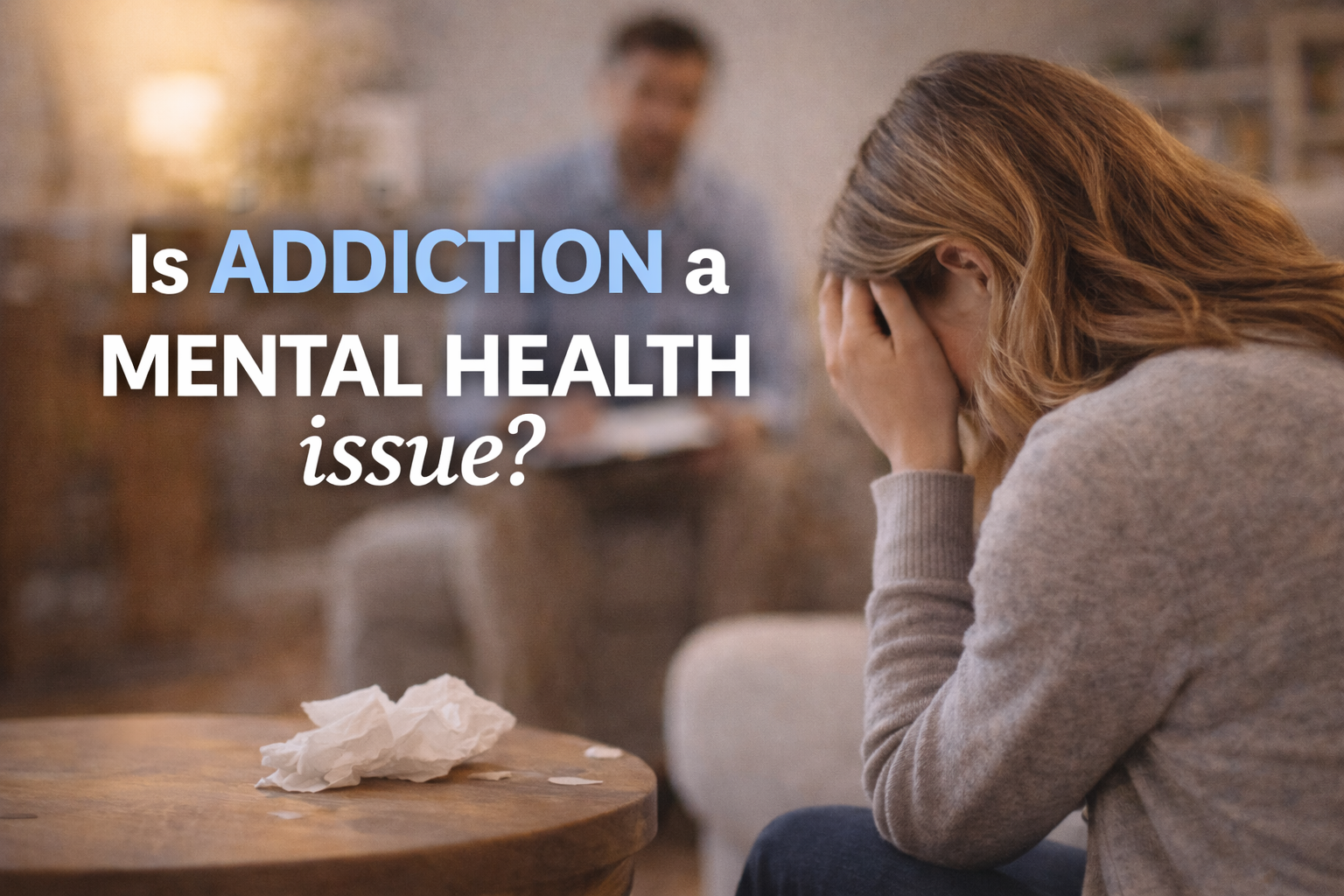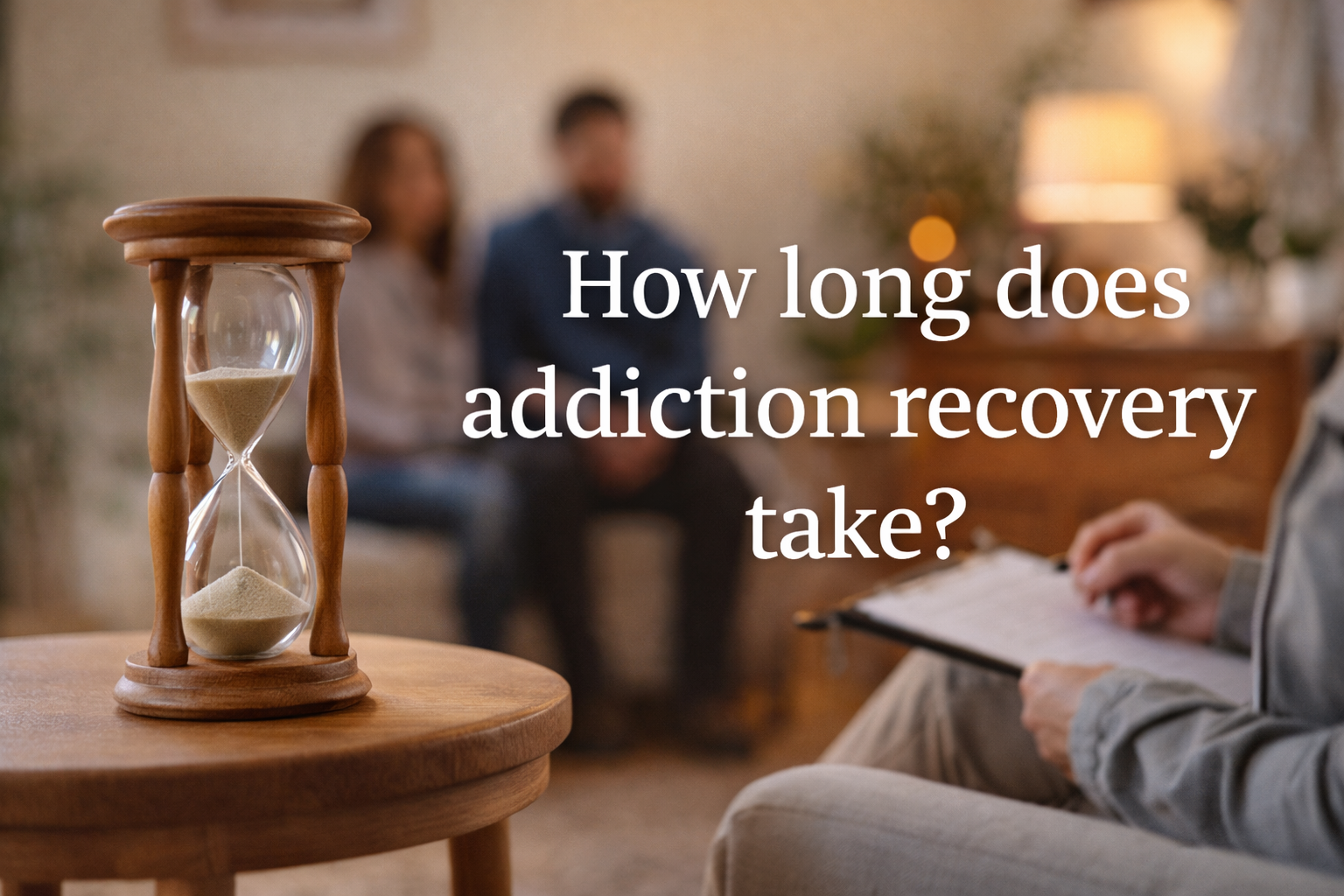
Addiction is a complex and difficult condition, but it is treatable. It affects not only individuals but also their families, workplaces, and communities. Seeking help is the first — and often the hardest — step toward recovery. If you're wondering where to start, understanding the local addiction support groups and services available near you is crucial in finding the right help. Whether you're seeking support for yourself or someone you care about, knowing where to find assistance can make all the difference.
This guide will provide helpful resources for finding addiction help near you, including local addiction support groups, professionals, and treatment centres.
1. Speak to Your GP (General Practitioner)
Your GP is often the first point of contact when seeking help for addiction. Many people hesitate to talk to their GP, but general practitioners are highly trained in managing addiction and can offer a safe, confidential space to discuss your concerns.
- Physical and mental health assessment: Your GP will evaluate the physical and psychological impact of addiction on your health.
- Referral to local addiction support groups and specialists: GPs can refer you to specialized services, such as outpatient therapy, local addiction support groups, and detox programmes.
- Creating a personalized treatment plan: Your doctor will work with you to design a treatment plan that may involve therapy, medication, and supportive care.
- Online assessments: If you are too afraid or shy to speak to someone about it at the preliminary stages, taking an online assessment is a great start to identify if help is needed. Take our assessment here to see if you need help.
2. Search Online for Addiction Support Services

The internet is a powerful tool for finding addiction services near you. Many government health websites, private healthcare providers, and local support services list their programmes online. Here are some key resources:
- 24/7 hotlines: Look for hotlines that offer immediate support for individuals in crisis.
- Outpatient counselling programmes: Many local addiction treatment centres offer outpatient counselling where individuals can receive therapy and support while continuing to live at home.
- Residential rehab centres: If you require more intensive support, search for residential rehab centres near you that offer inpatient programmes.
- Peer support groups: Local addiction support groups like Narcotics Anonymous (NA) or Alcoholics Anonymous (AA) are available in most areas. These groups offer a sense of community and shared understanding.
- Evidence-based treatment programmes: Always look for services that provide evidence-based treatments, which integrate medical, therapeutic, and psychological care.
3. Reach Out to a Psychologist or Psychiatrist
Mental health professionals such as psychologists and psychiatrists are essential in treating addiction, especially when the addiction is linked to underlying mental health conditions like depression, anxiety, or trauma.
- Psychologists offer therapies such as Cognitive Behavioural Therapy (CBT), which can help you identify and change negative thought patterns that contribute to addiction.
- Psychiatrists can diagnose co-occurring disorders and prescribe medication, when necessary, for mental health and addiction issues. Dual diagnosis treatment is highly effective when addiction and mental health disorders occur simultaneously.
- Many psychologists and psychiatrists can direct you to local addiction support groups or community-based treatment programmes.
4. Talk to Someone You Trust
If you're not ready to reach out to a professional yet, sometimes the first step is to talk to someone you trust. Opening up to a friend, family member, mentor, or colleague can be a powerful way to take the initial step toward recovery.
- Support from trusted individuals: Having a support network can help guide you to the appropriate local addiction support groups or treatment resources.
- Emotional reassurance: The person you trust can provide encouragement and help you feel less isolated in your journey toward recovery.
- Reducing stigma: Talking to someone can ease feelings of shame or guilt, which are common in addiction. It can help you realize that addiction recovery is possible and that you don’t have to face it alone.
5. Contact Solace Asia – We’re Here to Help
At Solace Asia, we understand the challenges of overcoming addiction, and we are here to guide you every step of the way. We offer a range of personalized outpatient services, inpatient rehab options, and local addiction support groups to help individuals on their journey to recovery.
- Outpatient programmes: We provide individual therapy and group therapy sessions for those who need flexible treatment while continuing their daily routines.
- Residential treatment: For individuals who need more intensive support, we offer residential rehabilitation programmes in a safe and structured environment.
- Ongoing recovery support: Our team is committed to offering long-term support through follow-up care, peer groups, and resources to help prevent relapse and sustain sobriety.
- Confidential care: We believe in confidential, compassionate care, where you can feel heard and supported, without judgement.
Final Thoughts

No matter where you are in your recovery journey, help is always within reach. Whether you choose to contact your GP, search for local addiction support groups, or reach out to a mental health professional, taking that first step is crucial to starting your path to recovery. Addiction recovery is a process, but it is possible, and you don't have to do it alone.
If you or a loved one are struggling with addiction, contact Solace Asia today for compassionate, personalized support. We are here to help guide you through the recovery process and support you as you build a healthier, more fulfilling future.




.jpg)



